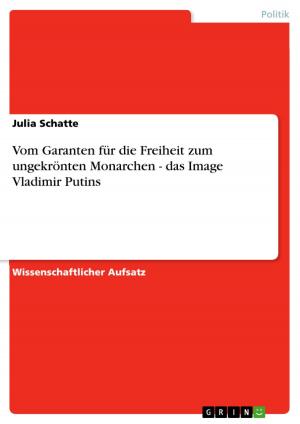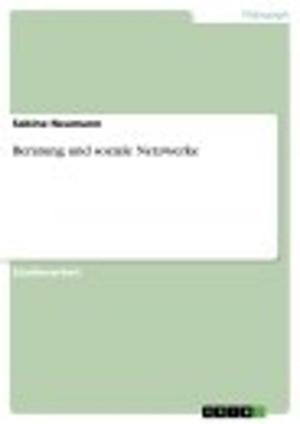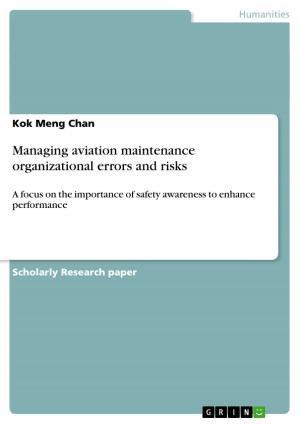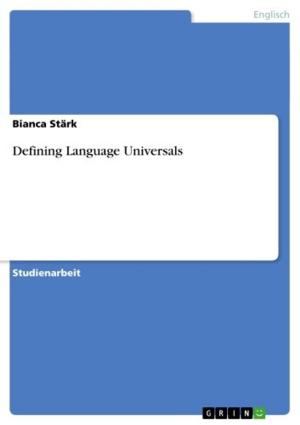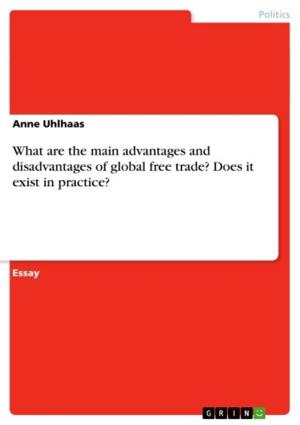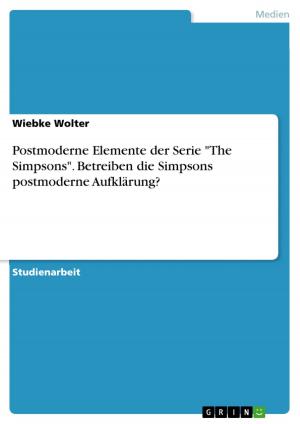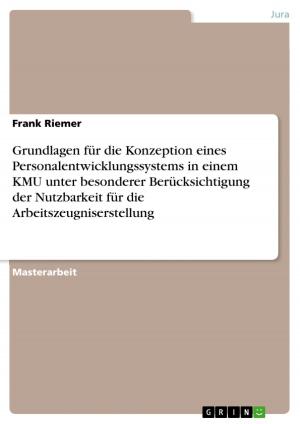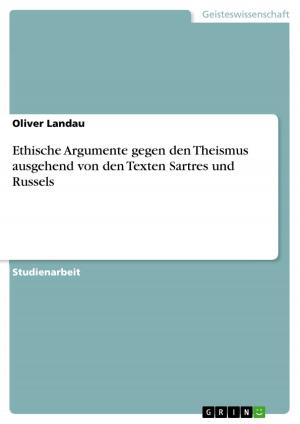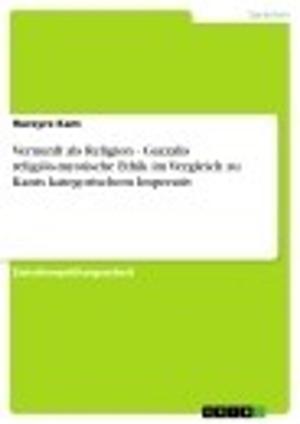Why Beauty Matters. The Transformational Experiences of Art and Music upon the Human Soul
Nonfiction, Health & Well Being, Psychology, Applied Psychology| Author: | Cyrus Manasseh, Pamela Schmidt | ISBN: | 9783668126091 |
| Publisher: | GRIN Verlag | Publication: | January 15, 2016 |
| Imprint: | GRIN Verlag | Language: | English |
| Author: | Cyrus Manasseh, Pamela Schmidt |
| ISBN: | 9783668126091 |
| Publisher: | GRIN Verlag |
| Publication: | January 15, 2016 |
| Imprint: | GRIN Verlag |
| Language: | English |
Seminar paper from the year 2012 in the subject Psychology - Media Psychology, Liverpool John Moores University (Art and Design Academy), course: Academic Conference, language: English, abstract: Beauty takes our breath away. We come to rest, are silenced, and in awe. When beauty opens our hearts, our capacity to care for what is just and true enlarges. The triumvirate of western values - truth, beauty, and goodness - has long served as the foundation for positive human development. The experience of beauty takes us deep within ourselves to the most intimate sense of who we are and what we have endured. Beauty is the ultimate attractor and healer. It transcends us by pulling us out of ourselves and generates us to heal, repair, and move forward. Beauty in its many forms has profound neurological and psychological impact upon us. Artistic expression, and flow stimulate the growth of new brain cells in the cerebral cortex. Such experiences raise physiological levels in the immune, the endocrine, and the nervous systems. 'Emotions play out in the theatre of the body. Feelings play out in the theatre of the mind.' As a significant psychologically transcendent experience, this arousal increases well-being, optimism, and resilience. Optimism is directly correlated with improved health. Drama, music, and art have the capacity to build and sustain resilience because creative engagement and participation is directly correlated with an overall positive impact on health, morale, and loneliness. This essays draws on some theoretical perspectives and research as they inform an understanding of the power of beauty and its transformational affect on the human psyche and development.
Cyrus Manasseh is a novelist, essayist, philosopher, historian and was a musician before he also took up writing. He teaches in universities and privately as a higher education consultant. He is an international scholar and has presented his ideas in a number of countries. Prof. Cyrus Manasseh PhD is also a Freelance Researcher and author of books 'The Lead Guitarist'; 'The Island Library'; and 'The Problematic of Video Art in the Museum 1968-90'. He is also author of numerous essays and scientific articles in the field of art history, film, architecture, video, museums, evolving media and theatre-drama. His published essays and articles include: The Art Museum in the 19th Century J. J. Winckelmann's Influence on the Establishing of the Classical Paradigm of the Art Museum; Art without the Aesthetics? Defining Conceptual & Post-Conceptual Practices'; 'From Passive White Cube Viewer to Active Black Cube User: Tracking Changes in Museum Environments via Installation Art (Analogue to Digital 1968-2008)'; 'Art, Language & Machines: Marcel Duchamp, Francis Picabia & Raymond Roussel' and many others. He has presented his research at international academic forums which include those in London, Sydney, Perth, Venice, Prague and Harvard where he was session chair and has lectured and has taught extensively in Australian Universities. He was a finalist for the International Award for Excellence in the Constructed Environment Journal Writers Award Annual Prize for the academic essay 'An Inquiry into the Design and the Aesthetics of the Venice Biennale Pavilions and Film'. His novel 'The Lead Guitarist' is currently published on Amazon.
Seminar paper from the year 2012 in the subject Psychology - Media Psychology, Liverpool John Moores University (Art and Design Academy), course: Academic Conference, language: English, abstract: Beauty takes our breath away. We come to rest, are silenced, and in awe. When beauty opens our hearts, our capacity to care for what is just and true enlarges. The triumvirate of western values - truth, beauty, and goodness - has long served as the foundation for positive human development. The experience of beauty takes us deep within ourselves to the most intimate sense of who we are and what we have endured. Beauty is the ultimate attractor and healer. It transcends us by pulling us out of ourselves and generates us to heal, repair, and move forward. Beauty in its many forms has profound neurological and psychological impact upon us. Artistic expression, and flow stimulate the growth of new brain cells in the cerebral cortex. Such experiences raise physiological levels in the immune, the endocrine, and the nervous systems. 'Emotions play out in the theatre of the body. Feelings play out in the theatre of the mind.' As a significant psychologically transcendent experience, this arousal increases well-being, optimism, and resilience. Optimism is directly correlated with improved health. Drama, music, and art have the capacity to build and sustain resilience because creative engagement and participation is directly correlated with an overall positive impact on health, morale, and loneliness. This essays draws on some theoretical perspectives and research as they inform an understanding of the power of beauty and its transformational affect on the human psyche and development.
Cyrus Manasseh is a novelist, essayist, philosopher, historian and was a musician before he also took up writing. He teaches in universities and privately as a higher education consultant. He is an international scholar and has presented his ideas in a number of countries. Prof. Cyrus Manasseh PhD is also a Freelance Researcher and author of books 'The Lead Guitarist'; 'The Island Library'; and 'The Problematic of Video Art in the Museum 1968-90'. He is also author of numerous essays and scientific articles in the field of art history, film, architecture, video, museums, evolving media and theatre-drama. His published essays and articles include: The Art Museum in the 19th Century J. J. Winckelmann's Influence on the Establishing of the Classical Paradigm of the Art Museum; Art without the Aesthetics? Defining Conceptual & Post-Conceptual Practices'; 'From Passive White Cube Viewer to Active Black Cube User: Tracking Changes in Museum Environments via Installation Art (Analogue to Digital 1968-2008)'; 'Art, Language & Machines: Marcel Duchamp, Francis Picabia & Raymond Roussel' and many others. He has presented his research at international academic forums which include those in London, Sydney, Perth, Venice, Prague and Harvard where he was session chair and has lectured and has taught extensively in Australian Universities. He was a finalist for the International Award for Excellence in the Constructed Environment Journal Writers Award Annual Prize for the academic essay 'An Inquiry into the Design and the Aesthetics of the Venice Biennale Pavilions and Film'. His novel 'The Lead Guitarist' is currently published on Amazon.


